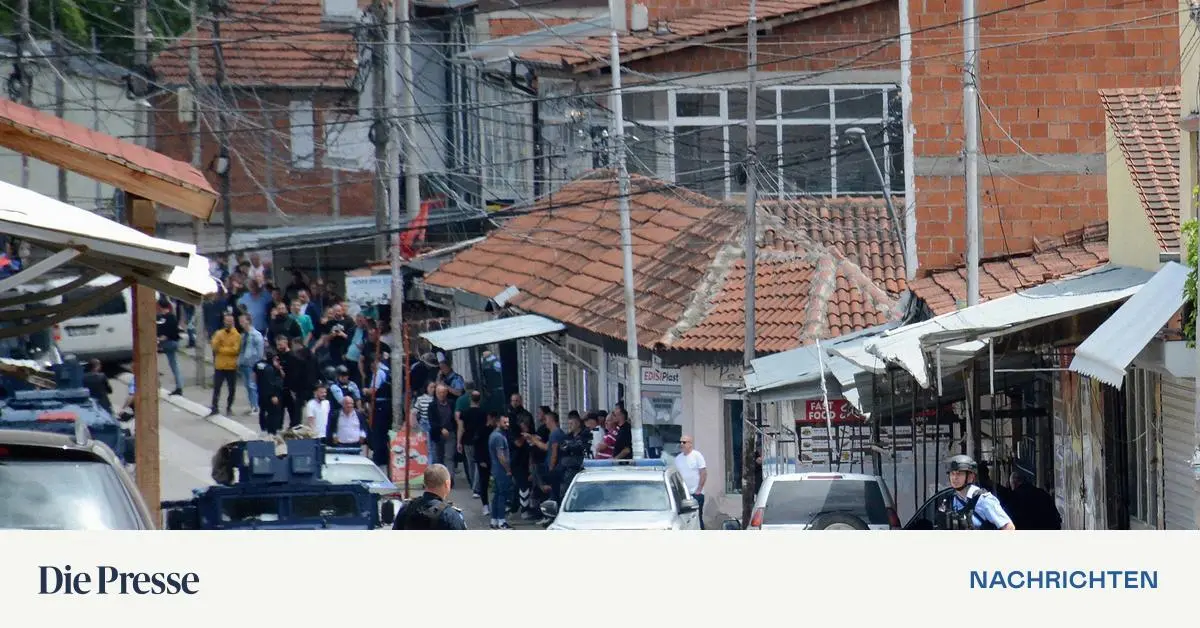The Kosovo government wants to coordinate with all partners. The presence of the special police will be reduced.
In Kosovo, Prime Minister Albin Kurti, under pressure from the West, agreed to reinstate controversial local elections in Serb minority regions. “The government of the Republic of Kosovo will coordinate with all stakeholders and announce early elections in four municipalities in the north,” Kurti said on Tuesday after meeting with the ambassadors of the United States, Italy, France, Germany and Britain.
In addition, the presence of special police in the area should be reduced. However, Corti said nothing about the greater autonomy demanded by the Serbian side.
The conflict in northern Serbian Kosovo
The actual background to the protests is the desire of the Serb majority in the northern parts of the country to secede from Kosovo, which is dominated by Albanians. At the end of May, there were serious riots because of the local elections on April 23rd. These were boycotted by the Serb majority in the north. As a result, Albanian mayoral candidates won in Serb-majority communities. Their entry to the town halls was secured by the special police against mass protests. Due to the unrest, NATO increased its forces in Kosovo.
The United States and the European Union asked Corte to dismiss the mayors and call in the special police. They also called on the head of the Albanian government to comply with the agreement reached in 2013 on the autonomy of the Serb communities. Corti has not publicly responded to this request. However, the prime minister has reservations, as he fears that further autonomy could push the region to join Serbia.
4,000 KFOR troops stationed
Serbia also insists on greater autonomy for Serbs in Kosovo. Serbian President Aleksandar Vucic last week called for Serbs to be given more right to self-determination before calling fresh local elections. According to Kurti, further measures will be determined at a meeting of Serb representatives and his government in Brussels.
Kosovo declared its independence from Serbia in 2008. However, this is not recognized by either Serbia or the Serb population of Kosovo. The NATO-led Kosovo Force (KFOR) has been charged with ensuring security in the country since 1999 on the basis of a UN mandate. About 4,000 soldiers are currently stationed there.
Read on

“Food practitioner. Bacon guru. Infuriatingly humble zombie enthusiast. Total student.”








More Stories
Kyiv: Russian Kursk offensive halted
US Presidential Election: Former US Government Officials Warn Against Donald Trump's Election
Netherlands wants to leave asylum system